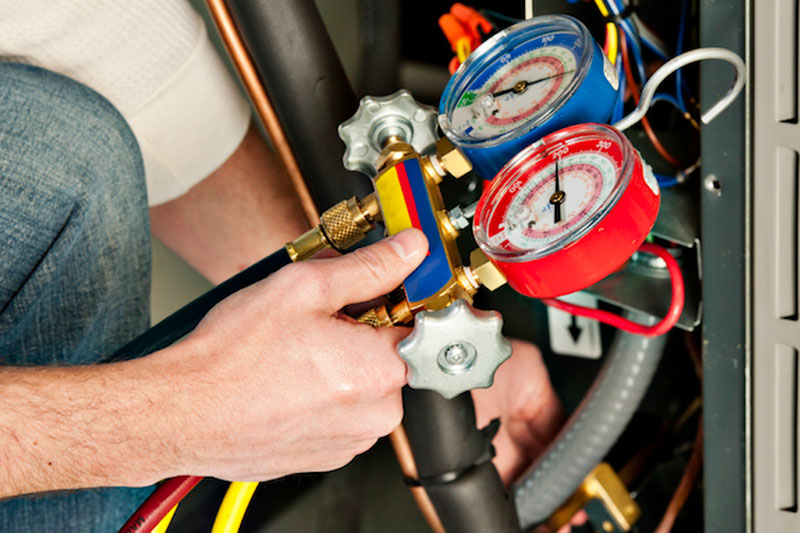
You might not think much about how your air conditioner operates, but it relies on refrigerant to keep your house cold. This refrigerant is bound by environmental laws, since it contains chemicals.
Subject to when your air conditioner was added to your home, it may need R-22, R-410A or R-32 refrigerant. We’ll review the differences and which air conditioner refrigerants are being phased out in Macon, in addition to how these phaseouts affect you.
What’s R-22 and Why Is It Phased Out?
If your air conditioner was installed before 2010, it likely has Freon®. You can learn if your air conditioner has it by calling us at 478-202-3170. You can also look at the name plate on your air conditioner condenser, which is found outside your house. This sticker will contain information on what type of refrigerant your AC uses.
Freon, which is also known as R-22, contains chlorine. Scientists consider Freon to be damaging to the earth’s ozone layer and one that results in global warming. The Environmental Protection Agency, which manages refrigerants in the United States, barred its creation and import in January 2020.
I Use an Air Conditioner with R-22. Do I Need to Get a New One?
It varies. If your air conditioning is operating as designed, you can continue to run it. With routine air conditioner maintenance, you can expect your air conditioning to operate around 15–20 years. However, the Department of Energy notes that removing a 10-year-old air conditioner could save you 20–40% on yearly cooling costs!
If you don’t install a new air conditioner, it can cause an issue if you need air conditioning repair later on, specifically for refrigerant. Repairs might be more expensive, because only reduced amounts of recycled and reclaimed R-22 is available.
With the phaseout of R-22, many new air conditioners now rely on Puron®. Also called R-410A, this refrigerant was created to keep the ozone layer in good shape. Since it requires a varying pressure level, it doesn’t match air conditioners that rely on R-22 for cooling.
However, Puron still has the possibility to create global warming. Because of that, it could also eventually be phased out. Although it hasn’t been mandated yet for residential air conditioners, it’s likely sometime this decade.
What Refrigerant Will Take Over R-410A?
In preparation of the end, some manufacturers have initiated using R-32 in new air conditioners. This refrigerant rates low for global warming potential—approximately one-third less than R-410A. And it also reduces energy expenditure by about 10%, according to the Intergovernmental Panel on Climate Change’s Fourth Assessment Report. That’s savings that may be forwarded on to you through your cooling expenses.
Air Temperature Control Can Provide Support with All Your Air Conditioning Needs
In summary, the modifications to air conditioner refrigerant probably won’t concern you greatly until you require repairs. But as we talked about previously, refrigerant repairs can be more costly because of the low quantities available.
Aside from that, your air conditioner typically breaks down at the worst time, typically on the warmest day when we’re experiencing lots of other calls for AC repair.
If your air conditioner uses an outdated refrigerant or is getting old, we suggest upgrading to an up-to-date, energy-efficient air conditioner. This delivers a stress-free summer and may even lower your utility bills, especially if you choose an ENERGY STAR®-rated system. Plus, Air Temperature Control has many financing options to make your new air conditioner even more affordable. Contact us at 478-202-3170 to begin right away with a free estimate.
